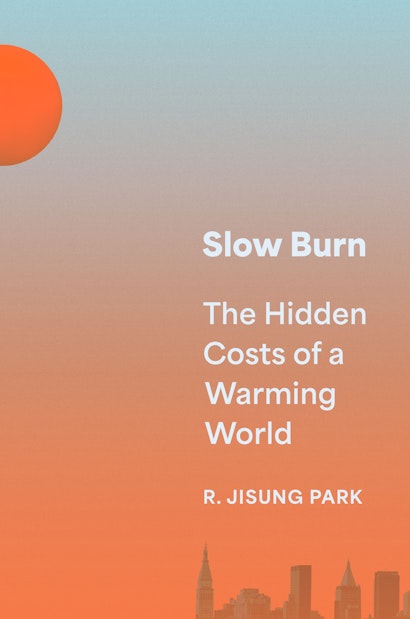In Slow Burn, R. Jisung Park encourages us to view climate change through a different lens: one that focuses less on the possibility of mass climate extinction in a theoretical future, and more on the everyday implications of climate change here and now. Drawing on a wealth of new data and cutting-edge economics, Park shows how climate change headlines often miss some of the most important costs. When wildfires blaze, what happens to people downwind of the smoke? When natural disasters destroy buildings and bridges, what happens to educational outcomes? Park explains how climate change operates as the silent accumulation of a thousand tiny conflagrations: imperceptibly elevated health risks spread across billions of people; pennies off the dollar of productivity; fewer opportunities for upward mobility.
Recently in Amsterdam, Professor R. Jisung Park took the podium at the John Adam鈥檚 Institute for American Culture in the first in a series of scheduled talks he will give on the European continent as part of a packed speaking tour.
Professor Park is part of the PUP Speaks program, which seeks to see academics at the centre of the most important conversations of our age. These conversations happen at conferences, colleges, Think Tanks and corporations all over the world. Below you can watch a clip of the John Adam鈥檚 Institute lecture and following Q&A.
R. Jisung Park is assistant professor at the University of Pennsylvania, where he holds appointments in the School of Social Policy and Practice and the Wharton School of Business. An environmental and labor economist, he has been investigating and writing about the economics of climate change for more than a decade. He has advised organizations that range from the World Bank to the New York City Departments of Education and Health.

